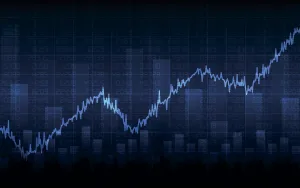How Geopolitical Events Shape Hong Kong’s Steel Market: Key Influences and Trends

The steel market in Hong Kong, a crucial part of its construction and industrial sectors, is highly susceptible to geopolitical events happening across the globe. As a major importer of steel and a hub for international trade, Hong Kong’s steel market reacts to fluctuations in supply, demand, and policy changes driven by global politics. In this article, we’ll explore how geopolitical events influence the steel market in Hong Kong and what businesses need to consider in an increasingly volatile landscape.
1. Global Trade Policies and Tariffs
Geopolitical events often lead to changes in trade policies, such as tariffs and quotas, that can directly impact steel prices and availability in Hong Kong. For instance, trade disputes between the U.S. and China can lead to higher tariffs on steel imports, limiting supply and driving up costs for Hong Kong’s industries that rely heavily on imports.
Key Influences:
- U.S.-China trade tensions and tariffs.
- Hong Kong’s position as a gateway to Mainland China’s steel.
- Tariff adjustments in major steel-producing nations.
2. Supply Chain Disruptions
Political instability and conflicts in key steel-producing regions can disrupt the supply chains that Hong Kong depends on. For example, the Russia-Ukraine war has affected global steel production and supply routes, driving up costs due to shortages or logistical challenges. Hong Kong, reliant on international steel imports, is vulnerable to these disruptions.
Key Influences:
- Conflicts in steel-producing countries like Ukraine and Russia.
- Shipping route disruptions in the South China Sea or key global trade routes.
- Political tensions affecting transport and logistics.
3. Diplomatic Relations and Trade Sanctions
Diplomatic relations between countries, particularly between Hong Kong, China, and other global powers, play a significant role in determining access to steel imports. Trade sanctions imposed on major steel-producing nations, such as those from the European Union or the U.S., can reduce the supply available to Hong Kong, affecting the market’s stability.
Key Influences:
- Sanctions imposed by the U.S. or EU on steel exports from China or other nations.
- Shifts in diplomatic relations between Hong Kong and its trade partners.
- Economic sanctions on steel-related technologies or equipment.
4. Currency Volatility Due to Geopolitical Instability
Geopolitical uncertainty can cause fluctuations in currency exchange rates, which significantly impact the steel market in Hong Kong. When political events cause instability in major currencies such as the U.S. dollar or Chinese yuan, the cost of importing steel can rise, as steel is often traded in these currencies.
Key Influences:
- Currency fluctuations driven by geopolitical uncertainty.
- Shifts in the value of the Hong Kong dollar against the U.S. dollar or yuan.
- Global economic instability following geopolitical crises.
5. Energy Prices and Resource Availability
Many geopolitical events, such as conflicts in oil-producing regions, can directly influence global energy prices. Steel production is energy-intensive, and increased energy costs drive up the overall price of steel. Hong Kong, as a net importer of both steel and energy, feels the ripple effect of rising global energy prices, which impacts the cost of steel.
Key Influences:
- Oil price fluctuations due to conflicts in the Middle East or Russia.
- Energy supply disruptions affecting steel production costs.
- Higher transportation costs impacting steel imports to Hong Kong.
6. Environmental and Sustainability Diplomacy
Global diplomatic efforts to address climate change and promote sustainability also influence Hong Kong’s steel market. Major steel-producing countries like China are facing increasing pressure to meet carbon reduction goals, which can lead to reduced production capacity or higher costs for environmentally compliant steel production. These changes often trickle down to Hong Kong’s market.
Key Influences:
- China’s commitment to carbon neutrality and its impact on steel output.
- Global environmental agreements and their influence on steel production.
- Pressure on Hong Kong to adopt sustainable building materials, impacting steel demand.
7. Regional Tensions in Asia
Regional tensions in Asia, especially those involving major economies like China, Japan, and South Korea, can disrupt the steel trade flows and supply lines in the region. Maritime disputes in the South China Sea, for example, could delay shipments and increase insurance costs for transporting goods, including steel, to Hong Kong.
Key Influences:
- Tensions between China and neighboring countries affecting steel trade routes.
- Diplomatic disputes over territorial claims in critical maritime areas.
- Increased risks in regional trade affecting the cost of imported steel.
Conclusion: The steel market in Hong Kong is intricately connected to global geopolitical events. From trade tariffs and sanctions to energy prices and currency fluctuations, external political forces shape the local steel market in significant ways. Businesses in Hong Kong must stay informed about international developments, anticipate potential risks, and adapt their strategies to mitigate the impacts of geopolitical instability on steel prices and supply.



